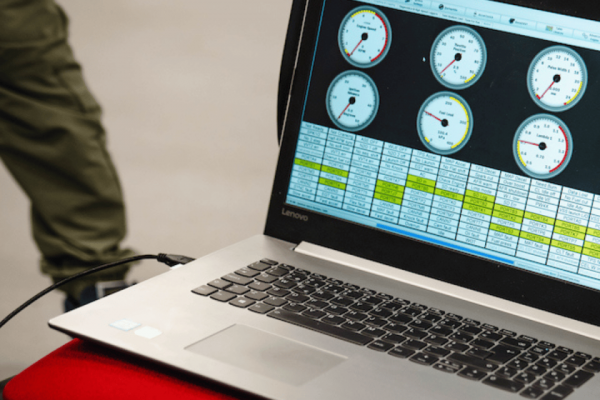
University of Bolton, Deane Road, Bolton. BL3 5AB
Tel:
Email:


“At the University of Bolton, we take great pride in providing a quality, supportive learning environment for our students.”
Professor George E Holmes DL | President & Vice Chancellor
“...tutors are very supportive and you’re not just a student ID number, at this university you are an individual with a name.”
Ellisse Vernon | BSc (Hons) Adult Nursing
Back to menu
Back to menu
Study with an Off-Campus Partner
Back to menu
Back to menu
University of Bolton, why we are the right choice
Location - Bolton, Greater Manchester

13/01/2025
If you’re considering attending the National Centre for Motorsport Engineering, you probably already understand the vital role telemetry and data plays within motorsport. But when it comes to optimisations and performance tweaks, what data is there to play with now, what’s coming in the future and how will AI change everything? Let’s explore.
Sumo explains, “Telemetry automatically collects, transmits and measures data from remote sources, using sensors and other devices to collect data.” So, the massive amount of data you get in real-time from a race car is telemetry. Sensors on the car collect that data and it is transmitted to the team’s computers, while also remaining logged on the car itself. These sensors monitor and transmit information about vehicle speed, tyre pressure, engine performance and energy consumption, temperatures and pressures, suspension positions, G-forces, driver controls and more.
If the idea of working with this kind of data excites you, then you could train with us to become a Data Engineer by taking BEng (Hons) Automotive Performance Engineering (Motorsport), BSc (Hons) Motorsport Technology, MSc Data Analytics and Technologies or an MSc Motorsport Engineering course.

Generally, what the driver sees on the day, even if it’s a digital display on the dash, is fixed. They’ll have multiple pages they can tab through, but data engineers can’t make 2-way changes to the driver display during a race. (And that’s not expected to change anytime soon.) The data is also fed into a central computer network for the race and engineering teams to look at.
Here’s what data feeds those different teams are concerned with, generally:
● The race engineers - lap times, tyre pressures and temperatures, fuel consumption, position on the track
● The driver - speed, steering angle, throttle, braking and gear
● The engineering team - acceleration, yaw rate, forces in suspension components, ride heights, aerodynamic data
But who looks at what data will be a little different depending on if it’s F1, touring cars or endurance, etc.
Predictive maintenance schedules and AI-informed performance strategies will be created by the Data Engineers of the future. Artificial intelligence (AI) and machine learning (ML) algorithms could analyse every other driver’s previous race performance ahead of a competition to create the “perfect strategy” as AI is already being used in pre-competition. Biometrics and physio monitoring are also coming, with biometric gloves that measure stress, blood oxygen levels and heart rate are already here. With AI helping race teams make better and faster strategy decisions and pit calls, the role of Data Scientists in race teams will become even more important as time goes on. But you’ll need even more digital skills than data specialists for race teams did previously.
That’s why, at Bolton, home to the UK’s only National Centre for Motorsport Engineering, you’ll always learn on industry-standard, £13 million purpose-built workshops, laboratories and advanced manufacturing facilities with the opportunities to get onto placements with our partner race teams, manufacturers and suppliers to earn essential real-world experience. That’s #UniAsItShouldBe. If working with this kind of race data sounds like the job for you, apply now or talk to our helpful team at admissions-team@bolton.ac.uk for more information.